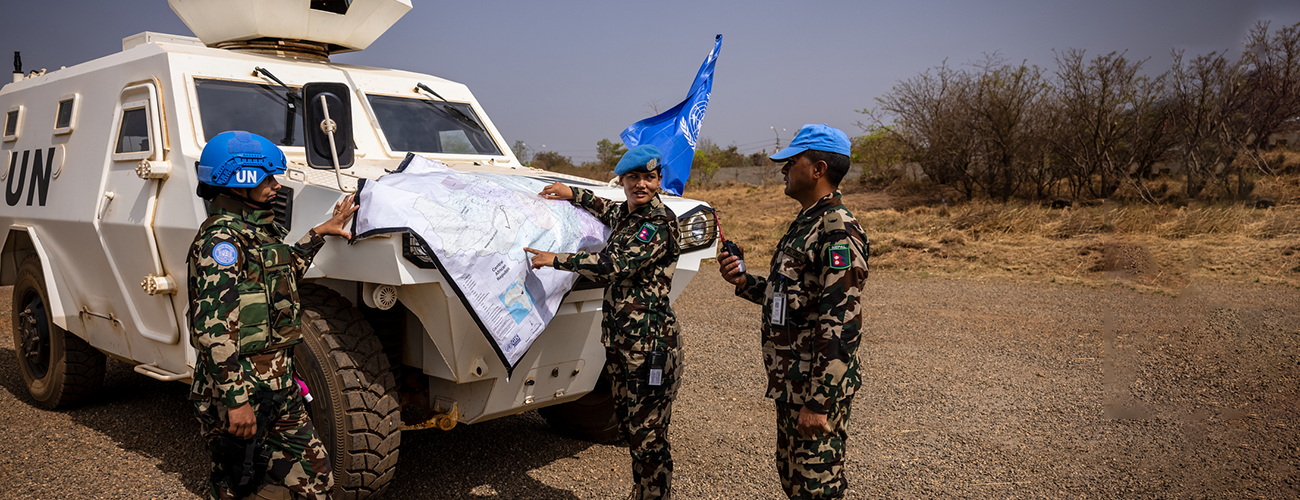Peacekeepers serving with the UN Mission in South Sudan, February 26, 2021. (UN Photo/Gregorio Cunha)
Since 2018, the UN Department of Peace Operations’ (DPO) Division for Policy, Evaluation and Training (DPET) has been rolling out the Comprehensive Planning and Performance Assessment System (CPAS) across all UN peacekeeping operations. CPAS sets out a framework for mission officials to interrogate how their operations impact stakeholders and processes in the country and whether these impacts are helping missions achieve their mandated priorities.
This policy paper examines the rollout and implementation of CPAS to date and reviews CPAS’s impact across three core areas: data collection and analysis, impact assessment, and mission planning. It also examines six factors that affect the implementation and impact of CPAS: (1) mission-wide integration; (2) mission leadership and mission-wide ownership; (3) capacities and skill sets; (4) alignment with other peacekeeping planning tools; (5) thematic priorities; and (6) dynamics between UN headquarters and field missions.
The paper concludes with the following recommendations, which are intended to help missions, headquarters, and member states sustain CPAS into the future:
- Peacekeeping operations should include CPAS-specific information in handover notes; share the topline of CPAS frameworks and impact assessments with UN headquarters; improve the design, tracking, and communication of CPAS recommendations; provide detailed overviews of CPAS impact assessments in the secretary-general’s reports to the Security Council; broaden CPAS participation to the UN country team and other UN entities in the country or region; and incorporate local views of mission performance and impact into CPAS.
- UN headquarters should publish CPAS fact sheets on mission websites; incorporate CPAS exercises and assessments into senior leadership training exercises; expand training materials on data analysis and visualization; and align CPAS with other UN planning and reporting processes.
- Member states should provide consistent political support and attention to CPAS; increase funding for civilian planning and data-management posts; and include CPAS in peacekeeping curricula at national peacekeeping and police training centers.








